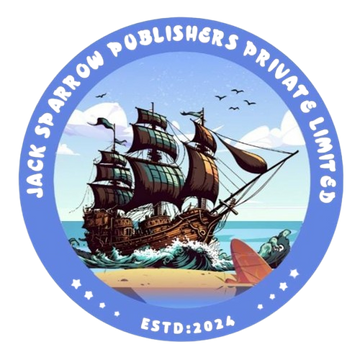Conference Proceedings Publication Guidelines

Conference Proceedings Publication Guidelines
Conferences play a vital role in the rapid dissemination of research. Unlike journals, which often have longer review cycles, conferences allow scholars to present, discuss, and publish their findings quickly. To preserve these contributions, Jack Sparrow Publishers offers two official publication formats:
1. Abstract Book Proceedings – a collection of short research summaries presented at the conference.
2. Conference Book Proceedings – a compilation of full-length peer-reviewed papers.
Both formats provide academic recognition, indexing opportunities, and archival value, but they serve different purposes depending on whether authors submit only an abstract or a full paper.
Abstract Book Proceedings


Serves as a conference record showing the range of topics and presentations.
Useful for quick reference and providing delegates with a snapshot of the research landscape.
Often used for networking and collaboration,
as researchers can identify similar topics of interest.


Abstract length: 250–350 words.
Must include:
Title of the research.
Author(s) full names, affiliations, and contact details.
3–5 Keywords.
Summary describing objective, method, findings, and conclusion.
Abstracts should be concise, without detailed references, tables, or figures.


Font: Times New Roman, size 12, single spacing.
Submission in editable format (Word/LaTeX).
May undergo light peer review or editorial screening.
Only accepted abstracts are included in the Abstract Book.


Published with an ISBN and available in digital and/or print formats.
DOI may be assigned to the complete book (not to individual abstracts).
Indexed in publisher repositories, library catalogues, and conference archives.


Ensures authors’ work is visible and citable (book reference).
Helps early-stage researchers showcase ideas without publishing full papers.


Serves as a conference record showing the range of topics and presentations.
Useful for quick reference and providing delegates with a snapshot of the research landscape.
Often used for networking and collaboration,
as researchers can identify similar topics of interest.


Abstract length: 250–350 words.
Must include:
Title of the research.
Author(s) full names, affiliations, and contact details.
3–5 Keywords.
Summary describing objective, method, findings, and conclusion.
Abstracts should be concise, without detailed references, tables, or figures.


Font: Times New Roman, size 12, single spacing.
Submission in editable format (Word/LaTeX).
May undergo light peer review or editorial screening.
Only accepted abstracts are included in the Abstract Book.


Published with an ISBN and available in digital and/or print formats.
DOI may be assigned to the complete book (not to individual abstracts).
Indexed in publisher repositories, library catalogues, and conference archives.


Ensures authors’ work is visible and citable (book reference).
Helps early-stage researchers showcase ideas without publishing full papers.
Conference Book Proceedings (Full-Length Publications)


Serves as the main publication outlet for complete research papers presented at the conference.
Ensures contributions are peer-reviewed, citable, and globally accessible.
Provides authors with higher academic
recognition than abstract-only publications.


Paper length: 6–10 pages (conference may specify variations).
Must include:
Title Page with author names, affiliations, ORCID IDs.
Abstract (150–250 words).
Keywords (3–6).
Full sections: Introduction, Methodology, Results, Discussion, Conclusion, References.
Use official conference proceedings template.
Figures/tables must be high resolution with proper captions.
Papers must be plagiarism-free (screened using Turnitin/iThenticate).
Authors must sign copyright/licensing agreement before publication.


Reviewers assess originality, methodology, and contribution.
Authors may be required to revise before acceptance.


Authors receive proofs to check before final publication.
Any final corrections must be submitted promptly.


Proceedings published with an ISBN/ISSN.
Each paper assigned a DOI (Digital Object Identifier).
Metadata prepared for submission to indexing agencies:
CrossRef for DOI registration.
Scopus, Web of Science (depending on eligibility).
Google Scholar, DOAJ, institutional repositories.
Available in digital and/or print formats.


Papers are permanently citable with DOI.
Indexed papers increase visibility, readership, and citations.
Enhances authors’ academic CVs, promotions, and grant applications.
Institutions gain recognition for hosting
indexed international conferences.


Serves as the main publication outlet for complete research papers presented at the conference.
Ensures contributions are peer-reviewed, citable, and globally accessible.
Provides authors with higher academic
recognition than abstract-only publications.


Paper length: 6–10 pages (conference may specify variations).
Must include:
Title Page with author names, affiliations, ORCID IDs.
Abstract (150–250 words).
Keywords (3–6).
Full sections: Introduction, Methodology, Results, Discussion, Conclusion, References.
Use official conference proceedings template.
Figures/tables must be high resolution with proper captions.
Papers must be plagiarism-free (screened using Turnitin/iThenticate).
Authors must sign copyright/licensing agreement before publication.


Reviewers assess originality, methodology, and contribution.
Authors may be required to revise before acceptance.


Authors receive proofs to check before final publication.
Any final corrections must be submitted promptly.


Proceedings published with an ISBN/ISSN.
Each paper assigned a DOI (Digital Object Identifier).
Metadata prepared for submission to indexing agencies:
CrossRef for DOI registration.
Scopus, Web of Science (depending on eligibility).
Google Scholar, DOAJ, institutional repositories.
Available in digital and/or print formats.


Papers are permanently citable with DOI.
Indexed papers increase visibility, readership, and citations.
Enhances authors’ academic CVs, promotions, and grant applications.
Institutions gain recognition for hosting
indexed international conferences.
Guidelines for Conference Organizers & Editors


Before the Conference:
Obtain approval from Jack Sparrow Publishers.
Assign ISBN/ISSN for proceedings.
Form a scientific committee for peer review.
During the Conference:
Ensure proper review and selection of papers.
Collect copyright/licensing agreements.
After the Conference:
Submit final versions of abstracts/papers to the publisher.
Provide accurate metadata (author details, titles, abstracts, keywords).
Assist in indexing submission and DOI allocation.


Avoid bias or favouritisms in peer review.
Maintain transparency and confidentiality in editorial decisions.


Before the Conference:
Obtain approval from Jack Sparrow Publishers.
Assign ISBN/ISSN for proceedings.
Form a scientific committee for peer review.
During the Conference:
Ensure proper review and selection of papers.
Collect copyright/licensing agreements.
After the Conference:
Submit final versions of abstracts/papers to the publisher.
Provide accurate metadata (author details, titles, abstracts, keywords).
Assist in indexing submission and DOI allocation.


Avoid bias or favouritisms in peer review.
Maintain transparency and confidentiality in editorial decisions.

